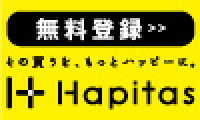
島根の絶対すぐ借りれる街金!
激甘審査でブラックでも借りれる街金、おすすめ17社。
「急な出費でお金が必要だけど、審査が厳しくて借りられない…」
そんな状況に直面していませんか?
銀行や大手消費者金融では、信用情報や収入の安定性を重視するため、過去に延滞歴がある方や非正規雇用の方は審査に通りにくいのが現実です。
しかし、島根には独自の基準で融資を行う「街金」と呼ばれる貸金業者が存在します。
街金の中には、比較的審査が甘く、迅速な対応をしてくれる業者もあります。
この記事では、島根で利用できる「激甘審査」の街金について、以下のポイントを詳しく解説します。
- 審査が甘い街金の特徴とは?
- 在籍確認なしで借りられるのか?
- 総量規制を超えても借入できるのか?
- 即日融資を受けるための方法
- 街金と違法業者(闇金)の違い
この記事を読むことで、自分の状況に合った安全な街金を見つけ、スムーズに融資を受けるための知識を得ることができます。
- 【島根の街金】ブラックでも絶対に借りれる消費者金融おすすめ一覧
- 1.クレジットカード現金化【プライムウォレット】選ばれ続ける超優良店
- 2.クレジットカード現金化【インパクト】最短5分で振込完了
- 3.クレジットカード現金化【あんしんクレジット】業界最高クラスの還元率
- 4.クレジットカード現金化【Quick現金サービス】とにかく早い!
- 5.クレジットカード現金化【どんなときもクレジット】初めての方、換金率3%UP
- 【QUICK39】お金を貸してくれるところをご紹介
- 1.【フクホー】ゆとりのローン!安心の金利7.30%〜
- 2.【スカイオフィスキャッシング】スピードと信頼の消費者金融
- 3.【キャレント】で借りんと!融資申込みキャンペーン中!
- 4.【アロー】最短即日融資もOK
- 5.【アルコシステム】信頼と実績のキャッシング
- 6.【プラン】全国どこからでも24時間簡単ご契約
- 7.【クレジットのニチデン】簡単・便利なネットキャッシング
- 8.【いつも】いつものキャッシング
- 9.借りやすくて返しやすい!キャッシング【フタバ】
- 10.来店不要・振込キャッシング【パーソナルクレジット セントラル】
- 11.安心できるパートナー【ハローハッピー】フリーローン
- 12.来店不要・振込キャッシング【女性専用 マイレディス】
- 女性専用!在宅で稼ぐ【FANZAノンアダルトチャットレディ募集】
- 島根の激甘審査の街金|サービス対象地域について
- 島根の激甘審査の街金を探すときの注意点
- 島根の激甘審査の街金は審査が甘い
- 島根の激甘審査の街金は在籍確認なしか
- 島根の激甘審査の街金は総量規制オーバーでも借りれるか?
- 島根の激甘審査の街金で即日融資を受けるには
- 島根の激甘審査の街金と、闇金との違い
- 島根の激甘審査の街金で審査落ち・・お金を借りれないときは
【島根の街金】ブラックでも絶対に借りれる消費者金融おすすめ一覧

かんたんアンケートに答えるだけで、おこづかいをゲット
| 無料会員登録!アンケートに参加するだけで、お小遣い稼ぎ |
|||
| サービス名 | サービス内容 | 報酬額 | 無料登録 |
| 【マクロミル】 |
スマホやPCで手軽にアンケートに答えて「現金」や「電子ギフト券」に交換可能なポイントがもらえます! | 新規登録で最大1000ポイント!(1,000円相当) | \会員120万人/ |
【オピニオンワールド】 |
かんたん登録1分、会員登録無料!ポイントを現金かギフトカードに交換 | アンケート1回につき、最高900円! | \900円ゲット/ |
【ボイスノート」】 |
かんたん登録1分、アンケート参加でポイントを現金かギフトカードに交換 | 会員登録だけで70ポイント獲得! | \今すぐ登録/ |
【モニタータウン |
かんたん登録1分、設定5分、会員登録無料!現金かギフトカードに交換 | アプリインストールでポイント獲得(2,800円相当) | \iphone専用/ |
【モニタータウン |
かんたん登録1分、設定5分、会員登録無料!現金かギフトカードに交換 | アプリインストールでポイント獲得(2,800円相当) | \Android専用/ |
【モニタータウン】 |
かんたん登録1分、設定5分、会員登録無料!現金かギフトカードに交換 | アプリインストールでポイント獲得(900円相当) | \PC専用/ |
【ハピタス】  |
お買い物やサービスの申し込みでポイントを貯めて、現金やギフト券に交換 | 会員登録時・500ptをプレゼント | \会員80万人/ |

スマホと紹介コードが必須!
スマホで銀行口座を開設するだけでおこづかいゲット!
| かんたん!【スマホ専用】無料の銀行口座開設でお小遣いをゲット | |||
| 銀行名 | 報酬額 | 紹介コード | 無料口座開設(スマホ必須) |
第一生命NEOBANK |
¥1,500 |
oFFWZro |
第一生命NEOBANK |
みんなの銀行 |
¥500 | hYBchqNL | みんなの銀行 |
UI銀行 |
¥500 | sh4402 | UI銀行 |

女性限定のお金稼ぎ!
在宅OKのかんたん美容モニタや、チャットレディ
| 【女性限定】かんたん!即金!お小遣い稼ぎができる在宅ワーク | |
【女性専用!美容モニター】 |
エステだけでなく、コスメや健康食品などを試せる在宅ワークのモニターも多数!「ファンモニ」(無料)会員登録はこちら 謝礼は1件1000円~5,000円ほど、複数組合わせれば月4万円以上も可能 |
【女性専用!在宅で稼ぐ】 |
自分の好きなタイミングで稼げるFANZAの在宅チャットレディ! ノンアダルトだから安心!スマホでかんたん在宅ワーク 時給7,500円以上可、安心の個人情報対策、最短翌日振込! |

ファクタリングなら!
あなたの持っている債権を買取ります!
| ファクタリング | 即日融資 | 手数料 | 申込み |
1.アクセルファクター |
来店不要 最短2時間!即日融資 |
買取手数料0.5%~ 審査通過率 93.3%以上 |
\個人・法人/ |
2.資金調達プロ |
かんたん10秒! 無料診断 最短即日融資 |
提携事業者数No1! 資金繰り改善率93%以上 |
\個人・法人/ |
3.株式会社No.1 |
最短30分で即日振込可能 | 買取手数料1%~(業界最安) 審査通過率 90%以上 |
\個人・法人/ |
4.エスコム |
最短即日で審査完了。 即日に資金調達可能。 |
1.5%〜12% 資金化成功率97% |
\個人・法人/ |
5.Easy factor |
最短10分でお見積り 最短60分で振込可能 |
2%〜8% 資金化成功率97% |
\個人・法人/ |
6.いーばんく |
来店不要 最短即日入金可能 |
買取手数料4%~ 審査通過率 90%以上 |
\個人・法人/ |
7.ジャパンマネジメント |
最短即日で審査完了。 翌日に資金調達可能。 |
三社間(3%~10%) 二社間(10%~20%) 資金化成功率93% |
\個人・法人/ |
8.PayToday |
最短30分で審査完了。最短45分で振込可能。 | 1%〜9.5%(上限) | \個人・法人/ |
9.MSFJ |
来店不要 最短1日で買取可能 |
1.8%〜9.8% 累積実績1万件以上 |
\個人・法人/ |
10.トラストゲートウェイ |
来店不要 最短即日振込 |
1.5%〜9.5%(業界最安水準) 審査通過率95% |
\個人・法人/ |
11.トップ・マネジメント |
来店不要 最短即日振込 |
3社間ファクタリング(買取対象債権の99.5%〜96.5%) 2社間ファクタリング(買取対象債権の96.5%〜87.5%) |
\個人・法人/ |
12.西日本ファクター |
最短即日即買取り 診断無料 |
【九州、中国、四国エリアに限定】 手数料は2.8%〜 |
個人・法人(九州、中国、四国) |
13.三共サービス |
来店不要 資金化まで最短翌日 |
平均手数料8% 資金化成功率97% |
\法人のみ/ |
14.ネクストワン |
来店不要 資金化まで最短即日 |
1.5%〜10%(業界最安水準) | \法人のみ/ |
15.ラボル |
来店不要 最短30分入金 |
買取額の10% 振込手数料などの費用なし |
\個人事業主のみ/ |
16.請求書先払い |
最短60分でお振込み 対面不要 |
手数料3%〜10% 最低買取金額10万円 |
\個人事業主のみ/ |

クレカの現金化サービスなら、即日にも対応してくれます!
| 社名 | 即日融資 | 実質年率 | 限度額 | 特徴 |
1.クレカ現金化「プライムウォレット」 |
最短10分 | 還元率最大98% | 設定なし | ・24時間受付 ・土日祝日も即日振込 ・カード事故過去0件 |
2.クレカ現金化「インパクト」 |
最短5分 | 還元率最大99.5% | 設定なし | ・審査不要 ・土日祝日も即日振込 ・来店不要 |
3.クレカ現金化「あんしんクレジット」 |
最短3分 | 還元率最大99.5% | 設定なし | ・審査不要 ・土日祝日も即日振込 ・来店不要 |
4.クレカ現金化「Quick現金サービス」 |
最短20分 | 還元率最大90%(手数料無料) | 設定なし | ・24時間365日受付 ・土日祝日も即日振込 ・審査不要 |
5.クレカ現金化「どんなときもクレジット」 |
最短5分 | 還元率最大98% | 設定なし | ・24時間受付 ・土日祝日も即日振込 ・スマホで申込完結 |
QUICK39のキャッシングローン紹介 |
お金を貸してくれるトコロを見つけます。 どこからも借りれない・・金利が高くもっと安いところへ借り換えしたい・・こんな悩みを解消します。 |
・完全無料 ・紹介料無料 ・手数料無料 |
||
1.フクホー |
対応 | 7.3%〜18.0% | 1〜200万円 | ・24時間受付 ・来店不要 ・利息は利用日数分だけ |
2.スカイオフィスキャッシング |
対応 | 15.0%〜20.0% | 1〜50万円 | ・24時間受付 ・来店不要 ・最短30分で審査完了 |
3.キャレント |
対応 ※ | 7.8%〜18.0% | 1万円~500万円 | ・24時間受付 ・来店不要 ・申込まで3分で完了 |
4.アロー |
対応 | 15.0%〜19.94% | 200万円まで | ・24時間受付 ・来店不要 ・かんたん3秒診断 |
5.アルコシステム |
対応 | 15.0%〜20.0% | 1〜50万円 | ・24時間受付 ・来店不要 ・保証人・担保不要 |
6.プラン |
対応 | 12.00%~18.00% | 1〜50万円 | ・24時間受付 ・来店不要 ・保証人・担保不要 |
7.クレジットのニチデン |
対応 ※ | 7.3%〜17.52% | 1〜50万円 | ・24時間受付 ・来店不要 ・100日間利息なし(初回のみ) |
8.いつも |
対応 | 4.8%~18.0% | 1万円~500万円 | ・24時間受付 ・来店不要 ・最大60日間利息なし(初回のみ) |
9.フタバ |
対応 | 14.959%~19.945% | 1万円~50万円 | |
10.セントラル |
対応 |
4.8%~18.0% |
1万円~300万円 | ・24時間受付 ・最大30日間利息なし(初回のみ) ・セブン銀行ATMでご利用ご返済が可能 |
11.ハローハッピー |
対応 | 10.00%~18.00% | 100万円まで | ・24時間受付 ・来店不要 ・保証人・担保不要 ・パート・アルバイト・主婦の方も歓迎 |
12.マイレディス |
対応 | 4.80%〜18.00% | 1万円〜100万円 | ・24時間受付 ・来店不要 ・保証人・担保不要 ・女性専用キャッシング |
【女性専用!在宅で稼ぐ】 |
自分の好きなタイミングで稼げるFANZAの在宅チャットレディ! ノンアダルトだから安心!スマホでかんたん在宅ワーク 時給7,500円以上可、安心の個人情報対策、最短翌日振込! |
|||
13.オージェイ |
対応 | 9.5%〜18.0% | 10万円~5,000万円 | ・24時間受付 ・来店不要 |
14.アクト・ウィル |
対応 | 7.5%〜15.0% | 300万円~1億万円 | ・24時間受付 ・来店不要 ・審査は最短60分 |
15.ファンドワン |
対応 | 2.5%〜18.0% | 30万円~1億円 | ・24時間受付 ・来店不要 ・審査は最短40分 |
16.MRF |
対応 | 4%〜15.0% | 30万円~3億円 | ・24時間受付 ・来店不要 ・24時間以内に仮審査 |
※ 平日14時までの手続完了が条件
激甘審査の絶対すぐ借りれる街金(消費者金融)をご紹介します。
どの消費者金融も独自審査を採用しており、柔軟な対応をしてくれるのでブラックでも借りれて即日融資OKの可能性が高いです。
ブラックだからと諦めずに真剣にお金が必要な理由を説明して少しでも融資をしてもらえる確率をあげましょう。
またクレジットカードを現金化してくれる優良サービス店も合わせてご紹介します。
1.クレジットカード現金化【プライムウォレット】選ばれ続ける超優良店
ショッピング枠現金化業界で超有名で誰もが知っているプライムウォレット!
現在日本でも、キャッシュレス化が進んでおりクレジットカードを保有する方は増えておりますね♪
15時以降でも即日振込み可能で、地方銀行もOKです。
2.クレジットカード現金化【インパクト】最短5分で振込完了
インパクトは、超高還元率(最高99.5%)でしられるクレジットカード現金化優良店です。
さらに新規申込で2%換金率UP!
審査不要、来店不要で最短5分でお振込み。
クレジットカードのショッピング枠があれば現金化してくれる安心の優良店です。
3.クレジットカード現金化【あんしんクレジット】業界最高クラスの還元率
あんしんクレジットは、超高還元率(最高98.8%)でしられるクレジットカード現金化優良店です。
審査不要、来店不要で最短5分でお振込み。
クレジットカードのショッピング枠があれば現金化してくれる安心の優良店です。
4.クレジットカード現金化【Quick現金サービス】とにかく早い!
Quick現金サービスは、振込金額を最初に提示する優良現金化サービスです。
24時間WEB対応やLINEチャットなど、お客様目線のサービスを提供し続けてリピーターは脅威の90%以上!
急な出費でお金が足りない!そんな方でも大丈夫!
5.クレジットカード現金化【どんなときもクレジット】初めての方、換金率3%UP
急な出費で困っていませんか?
どんなお悩みも、どんなときもクレジットにお任せください。
お申込みが初めての方なら換金率3%アップ!
審査不要、来店不要で今すぐ現金化してくれる安心サービスです。
【QUICK39】お金を貸してくれるところをご紹介
消費者金融からの借り入れが多数あってどこからも借りれないと思っている方や 金利が高くてもっと安いところへ借り換えしたい方・・・
このような悩みを抱えたお客様にたいして 安心して安全でより安く借り入れが出来るようにサポートさせていただいております。
完全無料ですのでお客様から紹介料・手数料等の料金は一切いただいておりません。
1.【フクホー】ゆとりのローン!安心の金利7.30%〜
★創業45年★
キャッシング・消費者金融のフクホー 安心の金利7.30%〜!
最高200万円までのゆとりのローン。
キャッシング・消費者金融・ローンなら創業45年のフクホー。
ご来店一切不要、振込み キャッシングの消費者金融です。
レディースキャッシングもご用意しているので、女性の方でも安心してご利用頂けます。
2.【スカイオフィスキャッシング】スピードと信頼の消費者金融
最短30分!来店不要 スピードキャッシング!!受付は24時間可能!
当日 9:00〜14:00 までにお申込み頂きますと、 即日のお振込みが可能です。
スカイオフィスニッセイキャッシングは他社で断られた方でも柔軟に対応している消費者金融です。
インターネットから申込みを行い、審査が完了すればその日に融資を受けられます。
来店不要のスピードキャッシングは急な出費でお困りの方の力強い味方です。
3.【キャレント】で借りんと!融資申込みキャンペーン中!
インターネット専用キャッシング♪完全非対面でネット完結。
カード発行不要!全国どこでもご指定の銀行口座にお振込み致します。
担保、保証人不要でキャッシングが可能です。
インターネット申込み、365日、24時間受付中!
申込フォームの入力内容が少なく、簡単にお手続きいただけます♪
ご利用限度額は【1万円〜500万円】まで。
大手消費者金融、カードローンの審査が通らなかった方でも柔軟な審査で対応致します。
4.【アロー】最短即日融資もOK
無担保かつスピーディーな使途自由ローンです。
・独自審査
・来店不要
・最短即日振込
・アプリならWEBで完結、郵送物は一切なし!
「郵送物が一切不要なアローWEB完結ローン」の取扱いを開始いたしました。
お申込み後、一次審査が通過した方は、スマホでアプリをダウウンロードして頂くことで、 サービスをご利用いただくことができます。
5.【アルコシステム】信頼と実績のキャッシング
創業1983年、信頼と実積、振込キャッシングの老舗です。
お申し込み後、最短でその日のうちにご指定口座に送金いたします。
貸付利率(実質年率) 年3.00%~20.00%
保証人・担保不要。
ご融資範囲 50万円まで(要審査)
お申し込みはWEBで、24時間受付中。
6.【プラン】全国どこからでも24時間簡単ご契約
全国どこからでも24時間ネットでお申し込みからご契約まで可能です。
又、キャッシュサービス『プラン』では1万円から最高50万円までご融資可能です。
・ご来店不要
・最短即日ご融資可能
・担保・保証人不要
・月々2,000円からのご返済も可能
7.【クレジットのニチデン】簡単・便利なネットキャッシング
 簡単・便利・ネットキャッシング ニチデンのネットキャッシングへようこそ。
簡単・便利・ネットキャッシング ニチデンのネットキャッシングへようこそ。
振込ローン・不動産担保ローン・事業者ローンをご用意しています。
学生ローンにも対応、20歳以上で定期的に収入のある方を対象としております(パート・アルバイト・主婦の方も歓迎します)
大学生〜幅広い層に対応しており、福山、福山と3店舗ありますので手厚いサービスをモットーとして運営しています。
8.【いつも】いつものキャッシング
『早い』 来店不要!24時間申込受付、最短45分でお振込完了。
『頼れる』ご利用は1万円〜最大500万円まで。
『便利』 カード発行不要!郵送物一切なし!お客さまに合わせた柔軟な在籍確認。
『安心』 LINEやメール・電話でご対応、ご融資まで完全サポート。
『納得』 電話応対コンクールにて数度入賞した丁寧なご対応。
9.借りやすくて返しやすい!キャッシング【フタバ】
創業50年以上の実績と信頼のキャッシングのフタバです。
・来店不要・即日振込みキャッシングです。
・インターネット申込みで24時間全国受付
・お申込みはとっても簡単、お申込みフォームに入力するだけ。
・過去に自己破産・債務整理等された方もまずはお申込みください。
・大手消費者金融やカードローンの審査が通らなかった方もお申込みください。
・女性スタッフが対応致します。
10.来店不要・振込キャッシング【パーソナルクレジット セントラル】
<<創業40年を超える安心と実績の「セントラル」>>
WEB申込で当日最短融資可能です!
全国の皆さまからのお申込みに対応いたします。
セントラルは昭和48年創業の老舗の貸金業です。
全国に17店舗展開しております。 東京都内4店舗(浅草、新橋、新宿、池袋)、埼玉と神奈川に各1店舗 愛媛6店舗、香川2店舗、高知1店舗、岡山2店舗 計17店舗展開。
全国のセブン銀行ATM提携を開始し、 全国の方々にもますますご利用していただきやすくなりました。
さらに、ご利用が初めての方は最大30日間金利0円!
11.安心できるパートナー【ハローハッピー】フリーローン
ハローハッピーは身近なキャッシング!
20歳以上で定期的に収入のある方を対象としております(パート・アルバイト・主婦の方も歓迎します)
家電ローン:家電製品のご購入
教育ローン:保育園〜大学の学費
リフォームローン:ご自宅の増改築・修理
医療ローン:入院、通院費 事業資金ローン
事業資金ローン:自営業、学資資金
ハローハッピーは各都道府県の方々へのサービスが手厚いお店です。
12.来店不要・振込キャッシング【女性専用 マイレディス】
<<創業40年を超える安心と実績の「セントラル」>>
そんなセントラルから生まれた女性専用のキャッシング【マイレディス】
WEB申込で当日最短融資可能です!
全国の皆さまからのお申込みに対応いたします。
中四国中心に店舗展開の老舗セントラルは、首都圏店舗も拡充中!
全国のセブン銀行ATM提携を開始し、 全国の方々にもますますご利用していただきやすくなりました。
さらに、ご利用が初めての方は最大30日間金利0円!
女性専用!在宅で稼ぐ【FANZAノンアダルトチャットレディ募集】
自分の好きなタイミングで稼げる在宅チャットレディ。
ノンアダルトだから安心、スマホで出来るかんたん在宅ワークです。
初めての方でも「業界最大手」「FANZAだから安心」してお仕事できます。
高収入在宅アルバイトならFANZAチャットガール!
隙間のお時間でお仕事可能、副業としても大歓迎です。
万全の個人情報管理、時給7,500円以上可、最短翌日振込!
島根の激甘審査の街金|サービス対象地域について
島根県は、日本海に面した美しい自然が広がる地域であり、観光地や農業、漁業が盛んな一方で、時折予期しない出費が発生することもあります。
そんな時に頼りになるのが街金(消費者金融)です。街金(消費者金融)は、急な資金を必要とする時に便利なサービスを提供しており、島根県内でも多くの人々に利用されています。特に「激甘審査」と呼ばれるような、柔軟な審査基準を採用している街金(消費者金融)は、利用者にとって大きな助けとなっています。
地域ごとの特長や利便性を紹介しながら、どのようにして利用できるのかを詳しく見ていきましょう。
島根の街金(消費者金融)とは?
街金(消費者金融)は、通常の金融機関に比べて融資の審査が柔軟であり、急な出費に対応できることから多くの人々に利用されています。特に「激甘審査」の街金(消費者金融)は、過去に金融事故があった人や、他の銀行などで断られた人でも融資を受けやすいとされています。こうした街金(消費者金融)は、審査が速く、柔軟な対応をしてくれることが多いため、急な資金需要に最適です。
島根県内の街金(消費者金融)のサービス対象地域
島根県は広い範囲にわたる地域ですが、街金(消費者金融)は主要な都市や商業地域を中心にサービスを展開しています。それぞれの地域によって、サービスの提供状況や利用のしやすさが異なりますので、ここでは島根県内で利用できるエリアを詳しく説明します。
1. 松江市(県庁所在地)
松江市は島根県の県庁所在地で、商業施設や金融機関が集まる地域です。この地域では、多くの街金(消費者金融)がサービスを提供しています。松江駅周辺や中心部に営業所を構えている街金(消費者金融)も多く、直接訪問して申し込むことができます。また、インターネットを利用したオンライン申し込みサービスを提供している街金(消費者金融)もあり、自宅から簡単に申し込むことができるため、非常に便利です。
松江市内では、急な支出が発生した場合でも迅速に対応できる環境が整っており、即日融資を提供する街金(消費者金融)も多いです。特に「激甘審査」として知られる街金(消費者金融)は、過去の金融トラブルがあった人でも安心して利用できる可能性が高いです。
2. 出雲市
出雲市は出雲大社があることで観光地としても有名です。この地域では、観光業に従事している人々が多いため、シーズンによる収入の波があります。そのため、急な資金調達が必要な場合もあるでしょう。出雲市内の街金(消費者金融)もこうしたニーズに対応しており、短期間で融資を受けることができます。
出雲市では、特に少額融資に対応している街金(消費者金融)が多いです。数万円程度の融資を受けることができ、必要なときにすぐに現金を調達することが可能です。また、出雲市内でもオンラインで申し込むことができるサービスを提供しているため、地元にいながら簡単に手続きができます。
3. 浜田市
浜田市は、島根県の西端に位置し、漁業や農業が盛んな地域です。漁業や農業従事者は、収入が季節によって大きく変動することが多いため、急な出費に対応できるような融資サービスが必要です。浜田市にも、街金(消費者金融)の支店があり、急な資金調達に対応しています。
この地域では、少額融資を希望する人が多いため、融資の金額が数万円程度でも対応できる街金(消費者金融)が主流です。また、浜田市でもインターネット申し込みが可能な街金(消費者金融)が多いため、地域の交通事情に関係なく簡単に融資を受けることができます。
4. 益田市
益田市は、島根県の西部にある都市で、商業施設や生活基盤が整っています。こちらも、街金(消費者金融)のサービスを利用することができ、急な出費に対応するための融資が可能です。益田市内の主要な商業エリアやインターネットを通じて、簡単に申し込みができるため、地元の住民にも非常に便利です。
この地域でも、少額融資に対応している街金(消費者金融)が多く、数万円程度の融資を受けることができます。急な医療費や修理費用、生活費が足りないときにも安心して利用できるサービスです。
5. 隠岐の島
隠岐の島は、島根県の北西部に位置する離島で、島外へのアクセスが限られているため、地元の住民にとっては交通手段に制約があります。しかし、隠岐の島でも街金(消費者金融)のサービスは提供されており、オンライン申し込みを通じて、急な資金調達が可能です。島外からでも融資を受けることができるため、便利です。
島根で街金(消費者金融)を利用する際の注意点
島根県内で街金(消費者金融)を利用する際には、いくつかの注意点を押さえておくことが重要です。
1. 利用目的を明確にする
街金(消費者金融)を利用する前に、何に使うのか、その目的を明確にしておくことが重要です。無駄に借り入れることは避け、必要な分だけ借りるようにしましょう。
2. 返済計画を立てる
融資を受ける際には、しっかりと返済計画を立てることが必要です。金利が高い場合があるため、無理な返済を避けるためにも、借入額を慎重に決めましょう。
3. 金利を確認する
街金(消費者金融)の金利は、通常の銀行と比較して高めに設定されていることが多いです。借入を行う前に金利や返済条件をよく確認し、自分が無理なく返済できる金額を借りるようにしましょう。
島根県内の街金(消費者金融)は、松江市や出雲市、浜田市、益田市、隠岐の島など、広範囲にわたってサービスが提供されています。これらの地域では、「激甘審査」の街金(消費者金融)を利用することができ、急な出費にも迅速に対応できるのが特徴です。利用する際は、金利や返済計画をしっかりと確認し、無理なく返済できる範囲で借りることが大切です。
島根の激甘審査の街金を探すときの注意点
島根で急にお金が必要になったとき、多くの人が利用を考えるのが街金(消費者金融)です。
特に「激甘審査」として評判の業者を探す人も少なくありません。しかし、激甘審査だからといって安易に利用するのは危険です。利用前にしっかりと注意点を確認し、トラブルを避けるための準備が必要です。
激甘審査を謳う街金の特徴
激甘審査の街金は、審査が緩いことを売りにしており、通常の銀行や大手消費者金融では融資が難しい人でも融資を受けやすいという特徴があります。
しかし、これが必ずしも良いことばかりではないのです。激甘審査を行う業者は、審査を緩くする代わりに、金利を高めに設定している場合が多く、返済負担が大きくなる可能性があります。
1. 高金利に注意
激甘審査の街金を利用する際に最も注意すべき点は、金利が非常に高く設定されていることです。
安易に借りると、返済が難しくなってしまうことがあります。例えば、年利20%やそれ以上の金利が設定されていることもあります。これにより、借りた額以上の金額を返済しなければならない場合が多いのです。
金利の具体例
例えば、10万円を借りた場合、年利20%で借りると、1年間で12万円を返済しなければなりません。
この差額2万円が金利です。年利が高ければ高いほど、返済総額が大きくなるため、最初に借りる金額が少なくても、返済する金額が多くなります。
2. 返済計画を立てることの重要性
街金を利用する場合、返済計画は非常に重要です。
借りる前にしっかりと返済計画を立て、無理なく返せる範囲で借りることが大切です。急な支出で借りることになるかもしれませんが、生活費とのバランスを考えた借り入れが必要です。
返済計画の作り方
- 毎月の収入と支出を確認する: 自分の月収と生活費を把握し、毎月の返済にどれだけ充てられるかを考えます。
- 返済期間を決める: 借りる金額が少額であれば短期間での返済も可能ですが、大きな金額を借りる場合は、長期的に返済していく必要があります。
- 返済額を確保する: 毎月の返済額が生活に支障をきたさないよう、余裕を持った金額を返済額として設定します。
3. 契約前に隠れた手数料をチェック
街金を選ぶ際、金利や返済額だけではなく、手数料についても確認することが大切です。
激甘審査を提供する業者の中には、隠れた手数料や契約時に発生する追加料金を設定している場合もあります。契約前にこれらの費用を明確に理解しておかないと、後々思わぬ負担を強いられることになります。
注意すべき手数料
- 契約手数料: 初回契約時に発生する手数料がある場合があります。これが予想外の出費となることもありますので、事前に確認しましょう。
- 延滞手数料: 返済が遅れた場合の延滞手数料が高額な場合もあります。延滞が続くと、金利がさらに上がることもあるので、返済期限は守るようにしましょう。
- 借入手数料: 融資実行時に手数料が発生することもあります。これらの手数料は、最初に契約書に明記されている場合が多いので、しっかりと内容を確認しておきましょう。
4. 高額借入のリスク
一度借り入れができると、その後さらに借り入れを希望する場合が出てきますが、注意が必要です。
特に高額な借入をすると、その分返済の負担も大きくなります。少額の借入であれば比較的簡単に返済できる場合でも、高額な借入になると、返済が難しくなり、金利が大きな負担になることがあります。
高額借入を避ける方法
- 必要最小限の金額を借りる: 本当に必要な額だけを借り、無駄な借入を避けましょう。
- 返済能力に見合った借入額: 自分の返済能力に合った額を借りることが、最も重要です。自分が返済できる範囲での借入を心がけましょう。
5. 複数の業者を比較する
島根には多くの街金(消費者金融)が存在し、それぞれに異なる条件や金利が設定されています。
そのため、複数の業者を比較することは非常に重要です。激甘審査の業者の中にも、他の業者に比べて金利が低かったり、手数料が少なかったりする場合があります。
いくつかの業者を比較して、自分に最適な業者を選ぶことが賢い選択です。
比較する際のポイント
- 金利の設定: 業者ごとに金利が異なるため、必ず金利を比較しましょう。
- 返済期間: 自分が返済できる期間内で返済可能かどうかを比較します。
- 契約内容の明確さ: 契約時に不明確な点がないか、説明を受けた内容を確認しましょう。
6. 口コミや評判を参考にする
インターネットを活用して、実際にその街金を利用した人たちの口コミや評判を調べることも有効です。
口コミには、実際の金利や返済条件、対応の良さなどが記載されていることが多く、利用する前に参考にすることができます。
口コミを確認する際の注意点
- 信頼できるサイトを利用する: 口コミサイトの中には、信頼性が低いものもあります。できるだけ多くのサイトや掲示板を参考にして、信頼性の高い口コミを見極めましょう。
- 実際の利用者の体験を読む: 口コミの中でも、実際に利用した人の体験談を読んで、自分のニーズに合った業者かどうかを判断します。
島根で激甘審査の街金を利用する際は、事前にしっかりと情報を収集し、慎重に判断することが重要です。
金利や返済計画、契約内容をよく確認し、無理な借り入れを避けることが、トラブルを防ぐための大切なポイントです。
島根の激甘審査の街金は審査が甘い
島根の街金(消費者金融)は、他の大手金融機関に比べて審査が甘いとされています。
この審査の甘さは、急な資金が必要な人々にとって非常に助かる存在となりますが、便利さの裏には注意すべきポイントも多くあります。
街金の審査が甘い理由
街金(消費者金融)の審査が甘い理由には、いくつかのポイントがあります。
まず、街金は大手銀行や大手消費者金融とは異なり、比較的小規模で運営されていることが多いため、より柔軟な審査が可能です。ここではその特徴をいくつか挙げてみましょう。
1. 少額融資に特化している
街金は一般的に少額の融資を得意としており、その金額は数万円から数十万円程度です。
少額融資であれば、借り手の返済能力を大きく問いません。例えば、急な生活費や予期せぬ支出に対応するために必要な金額だけを借りることができます。このため、返済のリスクが低く、審査基準が緩くなることがよくあります。
2. 細かい審査基準が少ない
街金は審査の際に、収入証明書や勤務先の証明書を求めないことが多いです。
これは、借り手の信頼度を低くても融資を受けられるという特徴を持つため、銀行などよりも柔軟な対応をすることができます。確かに、審査が甘いといえますが、その反面、返済能力が不安定な場合には借り過ぎてしまうリスクがあることも理解しておく必要があります。
3. 他の借り入れ状況に寛容
街金では、他の金融機関での借り入れ状況にも寛容な場合があります。
例えば、すでに他社で借り入れがあっても、状況によっては新たな融資を受けられることがあります。大手消費者金融や銀行では、他社からの借り入れがある場合、融資が難しくなることもありますが、街金はこうした柔軟な対応が可能です。
島根の街金を利用するメリット
街金を利用する際のメリットは数多くあります。
審査の甘さから急な資金が必要な場合に非常に便利である一方で、その利用方法についてはしっかりと理解しておくべきポイントもあります。
1. 即日融資を受けられることが多い
街金は、他の大手金融機関よりも迅速な審査を行っていることが多いです。
そのため、急いでお金が必要な時に、申し込んだ当日に融資を受けられる可能性が高く、非常に便利です。銀行のように数日待たされることなく、早急に現金を手にすることができるため、急な支払いがある場合にも安心です。
2. 審査基準が比較的緩やか
審査基準が甘いため、安定した職業に就いていない場合や、収入が不安定な場合でも、融資を受けやすい点が大きな魅力です。
特に、アルバイトやパートタイムで働いている方々でも融資が受けられる可能性が高いのは、街金の大きなメリットです。
3. 少額から融資を受けることができる
街金では、少額からの融資が可能です。
例えば、数万円から借りることができるため、大きな負担なく必要な金額を手に入れることができます。大手の消費者金融では、融資額が大きくなると審査が厳しくなる場合が多いですが、街金ではその点が緩やかです。
島根の街金を利用する際の注意点
街金の利用には便利さと引き換えに注意すべき点もあります。
安易に利用することができるため、過剰に借り入れてしまうリスクが高まることがあります。
1. 高い金利
街金の最大のデメリットは、金利が高いことです。
審査が甘いため、金利が高く設定されることが多いです。例えば、大手消費者金融の金利と比較すると、街金の金利はかなり高くなることがあります。これにより、長期間の返済になった場合、利息が大きく膨らむ可能性があるため、借り入れを行う前に金利をしっかりと確認することが必要です。
2. 返済の負担
高い金利が適用されるため、返済額が増えていくことになります。
例えば、借りた金額が少額でも、利息が積み重なることで返済負担が大きくなる場合があります。返済が遅れるとさらに延滞金が発生するため、注意が必要です。金利の高さや返済の条件をきちんと理解し、計画的に借り入れを行うことが大切です。
3. 無理な借り入れは避けるべき
街金の審査が甘いため、つい借りすぎてしまうことがあります。
借りたお金を必要以上に使ってしまうと、後々返済が大変になります。街金を利用する際には、自分の返済能力をしっかりと考慮し、無理のない範囲で借りることが重要です。
街金を利用する際に気をつけるべきポイント
島根の街金を利用する際は、以下のポイントに注意するとより安全に利用することができます。
1. 事前に返済計画を立てる
借り入れ前に、返済計画をしっかり立てることが非常に重要です。
金利の負担が大きくなることを考慮し、無理なく返済できる金額を借りるようにしましょう。返済計画をしっかり立てることで、返済遅延を防ぎ、トラブルを避けることができます。
2. 利用目的を明確にする
街金を利用する目的が不明確であると、借りすぎてしまうことがあります。
借り入れをする際には、必要な金額だけを借り、用途を明確にすることが大切です。
3. 複数の街金を比較する
街金を選ぶ際には、複数の金融機関を比較して、最も条件の良いところを選ぶことが重要です。
金利や返済条件が異なるため、自分にとって最適な条件を見極めることが大切です。
島根の激甘審査の街金は在籍確認なしか
島根には多くの街金(消費者金融)が存在し、それぞれが異なるサービス内容を提供しています。
中でも「激甘審査」を掲げる街金は、利用者にとって非常に便利で、急な資金が必要な際に頼りにされます。
特に「在籍確認がない」という特徴がある街金は、プライバシーを重視する人々に人気です。
在籍確認とは?
まず最初に、「在籍確認」について簡単に説明します。
消費者金融が融資を行う際、借り手の返済能力を確認するために、在籍確認が行われることがあります。
これは、借り手が申告した勤務先に対して電話をかけ、その人物が実際に勤務しているかどうかを確認する作業です。通常、この電話は匿名で行われ、会社名や借り手の名前は伏せられますが、それでも職場に電話がかかること自体が気になる方も少なくありません。
激甘審査の街金における在籍確認なし
島根には、審査が非常に柔軟で、在籍確認を行わない街金が存在します。
これらの街金は、以下のような特徴を持っています。
1. 小額融資を主に扱っている
在籍確認がない街金では、少額の融資を取り扱うことが一般的です。
数万円から十数万円程度の融資であれば、詳細な勤務先の確認がなくても問題ないと判断される場合が多いです。小額融資であれば、返済のリスクが低いため、街金側も手続きを簡略化し、迅速に融資を実行することができます。
2. 迅速な対応を重視
多くの街金は、「即日融資」や「最短30分で融資」というスピーディーなサービスを提供しています。
特に急な支払いが必要な場合、在籍確認を省略することで融資のスピードが格段に早くなります。このようなサービスは、即日融資を希望する利用者にとって非常にありがたいものです。
3. プライバシーを守る
在籍確認がないことの大きなメリットは、借り手のプライバシーが守られる点です。
職場に電話がかかることで、借金がばれるリスクがなくなるため、他人に知られることなく融資を受けることができます。これにより、職場での人間関係を気にせずにお金を借りることができるため、安心感があります。
在籍確認なしで融資を受けるメリット
在籍確認を省略して融資を受けることには、いくつかの大きなメリットがあります。
1. 職場に知られない
最も大きなメリットは、職場に借り入れの事実が知られない点です。
通常、在籍確認の際には職場に電話がかかり、その結果として借金が周囲に知られる可能性があります。しかし、在籍確認がない場合、職場に電話がかかることがないため、プライバシーが保護されます。
2. 融資が早く決まる
在籍確認なしの街金では、申し込みから融資までの時間が非常に短縮されます。
電話での確認が省略されることで、手続きが簡略化され、最短で数十分以内に融資が決まることもあります。これにより、急な支出にも対応しやすくなります。
3. 手続きが簡単
在籍確認を省略することによって、申し込み手続きが非常にスムーズに進みます。
わざわざ職場に電話をかけてもらう手間がないため、借り手は他の手続きに集中することができ、ストレスを感じることなく融資を受けることができます。
在籍確認なしで融資を受けるデメリット
一方で、在籍確認なしで融資を受けることにはデメリットもあります。以下にいくつかのデメリットを挙げてみましょう。
1. 高い金利
在籍確認なしの融資は、リスクを減らすために金利が高く設定されることが多いです。
特に急いで融資を受けたい場合、金利が高くても借りるという選択肢を取ることが多いですが、その結果として返済総額が大きくなる可能性があります。金利が高いため、借りた金額よりも返済額がかなり多くなることもありますので、融資を受ける前に金利の確認が必要です。
2. 融資額の制限
在籍確認なしで融資を受ける場合、融資額が制限されることがあります。
多くの街金では、在籍確認がない代わりに、融資額が少額に制限されている場合があります。これは、借り手の返済能力を十分に把握できないため、リスクを減らすために融資額を制限しているためです。大きな額の融資を希望している場合、在籍確認なしでは融資が受けられないこともあるため、他の選択肢を検討する必要があります。
3. 返済能力の確認が不十分
在籍確認を省略することで、貸し手は借り手の収入状況や勤務先の安定性を十分に把握することができません。
そのため、返済能力が不十分な借り手に融資をしてしまうリスクがあります。このため、返済計画をしっかり立て、自己の返済能力をよく考えた上で融資を受けることが重要です。
島根の激甘審査の街金は総量規制オーバーでも借りれるか?
島根の街金(消費者金融)は「激甘審査」を謳っていることが多く、借り入れのハードルが低いと感じる人も多いでしょう。
しかし、総量規制という法律によって、借りられる額には限界があります。この規制を超えて借りることができるのか、気になる方も多いのではないでしょうか。
総量規制とは何か、そして総量規制オーバーで島根の街金から融資を受けることができるのかについて詳しく解説します。
1. 総量規制とは?
総量規制とは、消費者金融を含む貸金業者が個人に対して貸し出すことのできる金額を、借り手の年収の3分の1を上限とする法律です。
この規制は「貸し過ぎ」を防ぐために設けられており、過剰な借り入れを制限することを目的としています。
例えば、年収が300万円の人は、最大でも100万円までしか借りられません。この規制は消費者金融だけでなく、カードローンやクレジットカードのキャッシングなどにも適用されます。
1.1 総量規制の適用範囲
総量規制は、以下のような借り入れに適用されます:
- 消費者金融(街金)
- クレジットカードのキャッシング
- カードローン
- 自動車ローンや住宅ローンなどの一部を除いた個人向けの借り入れ全般
この規制により、同一の借り手が複数の貸金業者から借りた場合、その合計額が年収の3分の1を超えることはできません。
2. 激甘審査の街金(消費者金融)とは?
島根の街金(消費者金融)とは、比較的審査が緩く、過去に金融トラブルがあったり、信用情報に傷があったりする人でも融資をしてくれる金融機関を指します。
「激甘審査」とは、通常の金融機関に比べて審査基準が柔軟で、融資の許可を得やすいという特徴があります。
たとえば、信用情報に延滞歴があったとしても、返済能力があれば融資を受けることができる可能性があります。
街金の中には、返済計画を立てやすいように、柔軟に対応してくれるところもあります。しかし、この激甘審査の街金でも、総量規制を超えての融資は原則として難しいのです。
3. 総量規制オーバーでも借りられる方法は?
総量規制を超えて融資を受けることができるかというと、基本的には不可能です。
しかし、特定の条件や方法によって、融資が受けられるケースが存在します。以下でその方法を紹介します。
3.1 配偶者の収入を合算する
総量規制は申込者自身の年収に基づいていますが、もし配偶者がいる場合、その配偶者の収入を合算することができる場合があります。
これにより、融資額が増えることになります。
たとえば、年収300万円の方が配偶者の収入(年収200万円)を合算できれば、年収500万円として計算されます。この方法を利用することで、規制内での借り入れを可能にすることができます。
3.2 他の借り入れを完済する
もし他の借り入れがあれば、それを完済することで新たに融資を受けることができます。
たとえば、すでに他の消費者金融から100万円を借りている場合、その借り入れを完済すれば、その分だけ新たに借り入れができることになります。
また、借り換えローンを利用して低金利で借り換えることができれば、月々の返済額が軽減され、その分新たに借りることができるようになります。
3.3 少額の融資を受ける
少額の融資ならば、総量規制の範囲内であれば問題なく借りることができます。
たとえば、年収300万円の人が少額の融資(例えば10万円)を希望する場合、総量規制を超えることなく融資を受けることができます。
街金では、少額のキャッシングや短期融資を行っている業者も多く、急な支払いに対応するための融資を受けることが可能です。
4. 総量規制オーバーでも借りられない理由
街金(消費者金融)でも総量規制を超えた融資は基本的に行われません。
なぜなら、この規制は法律で定められたものであり、貸金業者が無視することができないためです。もし規制を超えて融資を行うと、貸金業者が法律に違反することになります。
また、過剰な借り入れを許可してしまうと、借り手が返済できなくなり、貸金業者自体が経済的なリスクを負うことになります。このため、たとえ審査が甘い街金であっても、総量規制を守ることが求められます。
島根の激甘審査の街金で即日融資を受けるには
島根の激甘審査の街金と、闇金との違い
お金に困ったときに、すぐに借りられる場所を探すことは多くの人が経験することです。
特に、急な支払いが発生した場合や、資金が必要なタイミングで「激甘審査」と謳っている街金(消費者金融)は、非常に魅力的に感じられることがあります。
しかし、この街金と闇金には大きな違いがあります。島根の街金と闇金の違いを理解することは、借り手にとって非常に重要です。どちらもお金を借りる手段として使われることがあるかもしれませんが、そのリスクや運営方法には大きな差があるのです。
街金(消費者金融)の基本
まず、街金とは正式には消費者金融業者として、金融庁などの行政機関に登録されている合法的な業者です。
これらの業者は、法的に定められた範囲内で融資を行い、借り手を保護するための制度や手続きを確立しています。
島根の街金でも、こうした正規の手続きを経て融資が提供されるため、安心して利用することができます。
1.1 激甘審査とは?
島根の激甘審査を提供する街金では、審査基準が比較的柔軟であるため、通常の金融機関では借りにくい人でも融資が受けられる可能性があります。
具体的には、過去にクレジットカードやローンの延滞歴があっても、一定の条件を満たせば融資が受けられることがあります。しかし、「激甘審査」と言っても、まったく審査をしないわけではありません。
街金の審査では、以下の点が確認されることが多いです。
- 収入の安定性:一定の収入があることが求められるため、失業中などでは融資を受けることが難しくなることがあります。
- 過去の金融履歴:過去に返済を遅れたことがある場合でも、回復していれば融資を受けられることがあります。
- 返済能力のチェック:返済を無理なく続けられるか、他の借り入れが多すぎないかなどが評価されます。
これらの審査を通過すると、即日融資を受けられることもありますが、金利は年利15~20%程度が一般的です。この金利は、消費者金融として法律で定められた範囲内であり、過剰な金利が設定されることはありません。
1.2 利用者保護と契約内容
街金の特徴として、契約内容が非常に明確であることが挙げられます。
融資契約を結ぶ際には、必ず契約書が交わされ、金利、返済方法、返済期間などの詳細が記載されます。
さらに、返済計画を立てて、無理のない借入額を設定することが推奨されます。万が一、返済が難しくなった場合にも、利息の負担を軽減するための手続きが用意されていることが多いです。
闇金とは?
一方で、闇金とは、法律に基づかずに営業を行っている違法な金融業者のことを指します。
島根でも、闇金業者が存在し、急な融資を必要とする人々をターゲットにしている場合があります。しかし、闇金はその運営方法が非常に危険であり、借り手にとって大きなリスクを伴います。
2.1 高金利とそのリスク
闇金が提供する金利は、法的に定められた上限を遥かに超えており、場合によっては年利100%を超えることもあります。
このような高金利が設定されることで、借りたお金がすぐに膨れ上がり、元金の返済が困難になることがあります。
特に、遅延して返済ができなくなると、利息が加算され続け、借金が雪だるま式に増えることになります。
金利が高いだけでなく、闇金は借り手の状況を無視してお金を貸すことが多いため、借り手の返済能力をしっかりと評価することはありません。返済が困難になると、次々に新たな借り入れをさせられ、借金地獄に陥るリスクが非常に高くなります。
2.2 違法な取り立て方法
闇金の最大の特徴は、その違法な取り立て方法です。
法的に認められていない方法で借金を取り立てるため、非常に危険な状況に追い込まれることがあります。具体的には、以下のような手段が取られることがあります。
- 暴力的な取り立て:借り手が返済できない場合、暴力的な方法で返済を迫ることがあります。
- 脅迫や嫌がらせ:借り手やその家族に対して、脅迫的な言動を行うことがあります。
- 不当な契約変更:契約後に条件を変更し、借り手に不利益を与えることがあります。
このような取り立て方法は、借り手にとって非常に精神的なプレッシャーとなり、最終的には身の安全を脅かされることもあります。
街金と闇金の違いを比較
では、街金と闇金の違いを比較してみましょう。
以下の表に、それぞれの特徴をまとめました。
| 項目 | 街金(消費者金融) | 闇金 |
|---|---|---|
| 法的な運営 | 正式に金融庁に登録されている | 無登録、違法営業 |
| 金利 | 年利15~20%程度 | 年利100%以上(法外金利) |
| 審査の厳しさ | 収入や信用情報に基づいて審査 | 審査なしまたは極端に緩い |
| 契約内容 | 明確で契約書が交わされる | 契約内容が不明確、変更されることが多い |
| 返済方法 | 安定した返済計画が立てられる | 返済方法が不透明、過剰な要求 |
| 利用者保護 | 法的に守られている | 利用者は保護されていない |
どちらを選ぶべきか?
もしも急な資金が必要な場合、街金(消費者金融)を利用する方が安全です。
街金は法的に運営されており、契約内容も明確で、返済方法や金利にも一定の基準が設けられています。そのため、借り手がリスクを最小限に抑えて融資を受けることができます。
一方で、闇金は非常に危険です。高金利や違法な取り立て方法など、借り手にとって非常に不利な条件が多いため、闇金からの借り入れは絶対に避けるべきです。万が一、闇金に関与してしまった場合は、早急に警察に相談することが重要です。
お金を借りる際は、信頼できる合法的な街金を選び、契約内容を十分に理解した上で融資を受けるようにしましょう。
島根の激甘審査の街金で審査落ち・・お金を借りれないときは
島根には多くの街金(消費者金融)があり、その中でも「激甘審査」を謳うところもあります。
審査が甘いとされるこれらの業者でも、必ずしも誰もが審査に通るわけではありません。もし審査に落ちてしまった場合、どうすればよいのでしょうか?お金を借りれない理由を振り返り、代わりに考えられる方法を紹介します。
1. 街金の審査に落ちる理由とは?
街金の審査は他の金融機関よりも比較的通りやすいことが多いですが、それでも審査に落ちることがあります。
その理由をまずはしっかり理解しておきましょう。
1.1 信用情報に傷がある
街金は、審査の際に必ず信用情報を確認します。過去にクレジットカードの支払いが遅れたり、ローンの返済に滞りがあった場合、その情報が信用情報機関に記録されています。
これが原因で審査に通らないことが多いです。
1.2 収入が安定していない
街金の審査では、安定した収入があることが求められます。
アルバイトや契約社員、フリーランスの方などは、収入の安定性に不安があると判断される場合があります。そのため、審査で不利になることがあります。
1.3 他社借り入れが多い
すでに他の金融機関やカード会社から多額の借り入れがある場合、それが問題となることもあります。
特に複数の街金や銀行から借り入れがある場合、返済能力を疑われて審査に落ちることがあります。
1.4 必要書類の不備
審査に必要な書類(本人確認書類、収入証明書など)が不備だったり、提出が遅れたりした場合、審査が進まないことがあります。
書類に不備がないか、きちんと確認しましょう。
2. 審査に落ちた場合の対処法
審査に落ちてしまった場合でも、焦らずに冷静に対応しましょう。
以下に挙げる方法を試してみると、再度お金を借りるチャンスが広がります。
2.1 信用情報を確認・改善する
もし審査に落ちた原因が信用情報にあるならば、まずは自分の信用情報を確認しましょう。
信用情報は、全国の信用情報機関で確認することができます。もし誤った情報が記載されていた場合は、訂正を依頼することができます。過去の遅延や滞納がある場合、その情報が残っている期間はどうしても審査が厳しくなります。信用情報に傷がついた場合は、時間が経つのを待つことが必要です。
2.2 安定した収入源を確保する
収入が安定していないことが原因で審査に落ちた場合、収入源を安定させることが大切です。
もしフリーランスやアルバイトで収入が不安定な場合、正社員として働くことを検討しましょう。収入が安定すると、再度審査を受ける際に有利になります。また、副収入を得るために副業を始めることも一つの方法です。
2.3 借り入れ状況を見直す
すでに他社から借り入れが多い場合は、その状況を見直してみましょう。
まずは借金を減らすために、借り換えを検討することも一つの手です。借り換えによって、月々の返済額を減らすことができ、返済の負担を軽くすることができます。また、複数の借り入れを一本化することも可能です。借り入れが少ないほうが、審査に通りやすくなります。
2.4 必要書類を再確認する
審査に落ちた理由が書類不備の場合、必要書類をきちんと準備し、再度申し込みをしましょう。
例えば、収入証明書や本人確認書類は最新のものを用意し、提出期限を守ることが重要です。特に、申込書に記入漏れや誤りがないかも確認することをおすすめします。
3. 審査に落ちた場合の他の選択肢
もし街金(消費者金融)で審査に落ちた場合でも、他にお金を借りる方法は存在します。
以下の方法を試すことができます。
3.1 銀行のカードローンを検討する
銀行のカードローンは、金利が低いことが多いですが、審査が厳しい傾向にあります。
街金の審査に落ちた場合でも、銀行のカードローンに申し込むことができます。審査基準が異なるため、審査に通る場合もあります。銀行カードローンの場合、収入が安定していることや他社借り入れが少ないことが求められるため、必要な書類を準備して再度申し込むことができます。
3.2 質屋でお金を借りる
質屋では、物品を担保にお金を借りることができます。
金やブランド品、時計など、価値のある物を担保にすることで、信用情報や収入に関係なくお金を借りることができます。返済ができなかった場合は、担保にした物が売却されますが、万が一返済できない場合にも物品を取り戻すことができます。
3.3 親や友人に借りる
最もリスクの少ない方法は、親や友人からお金を借りることです。
借り入れが少なく、返済能力に問題がない場合は、親や友人に頼むことも考えてみましょう。しかし、お金の貸し借りは人間関係に影響を与える可能性があるため、しっかりと返済計画を立て、約束を守ることが重要です。
3.4 クレジットカードのキャッシングを利用する
クレジットカードにキャッシング機能がついている場合、それを利用するのも一つの方法です。
クレジットカードのキャッシングは、手軽に借りられるため便利ですが、金利が高い場合もあるので、利用額を抑えて早期に返済することを心掛けましょう。
4. お金を借りるために必要な心構え
審査に落ちてしまった場合、焦らず冷静に対応することが大切です。
無理にお金を借りようとすると、返済の負担が大きくなり、後々困ることになるかもしれません。自分の返済能力をしっかりと考えた上で、最適な方法を選びましょう。また、借りることができた場合でも、計画的に返済を進めることが重要です。





























